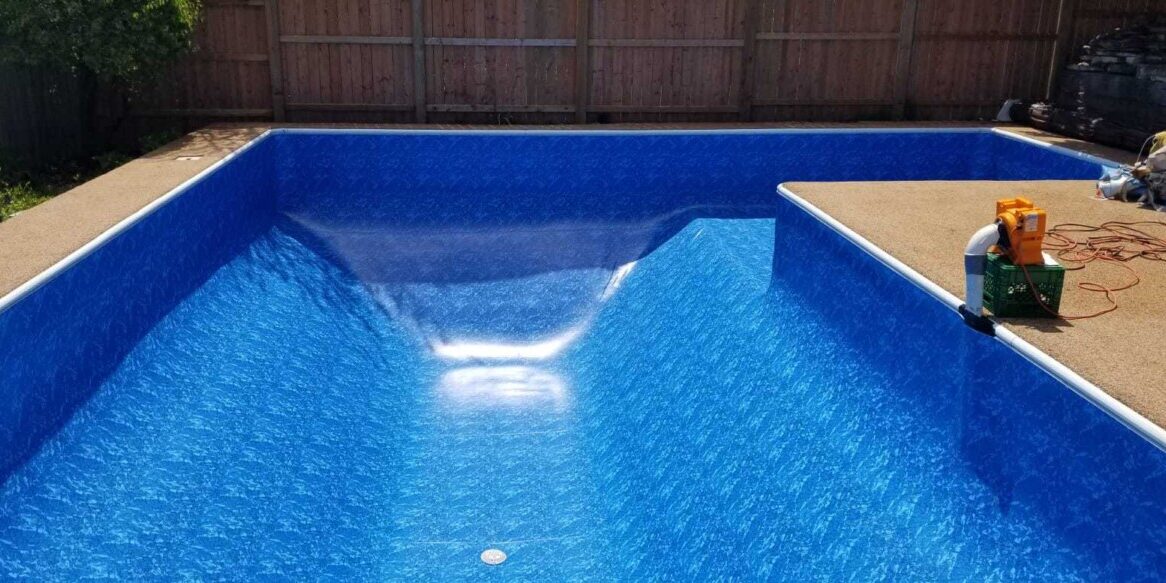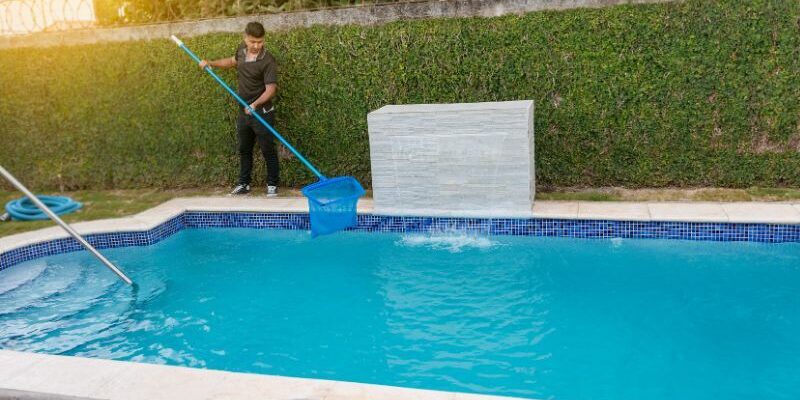Every pool owner knows their swimming pool is more than just a place to cool off during the summer. It’s a personal oasis that demands attention and care. One of the key aspects to pay attention to is the lifespan of your pool’s liner.
At Coastal Pools, we believe in proactive maintenance, which includes being aware of your liner’s condition and age. Most pool owners would tell you that the average life expectancy of vinyl pool liners is around 15 years. This, however, can vary based on factors such as the liner’s quality, pool usage, the balance of pool chemicals, and local climate.
The Unmissable Signs: It’s Time to Replace Your Pool Liner
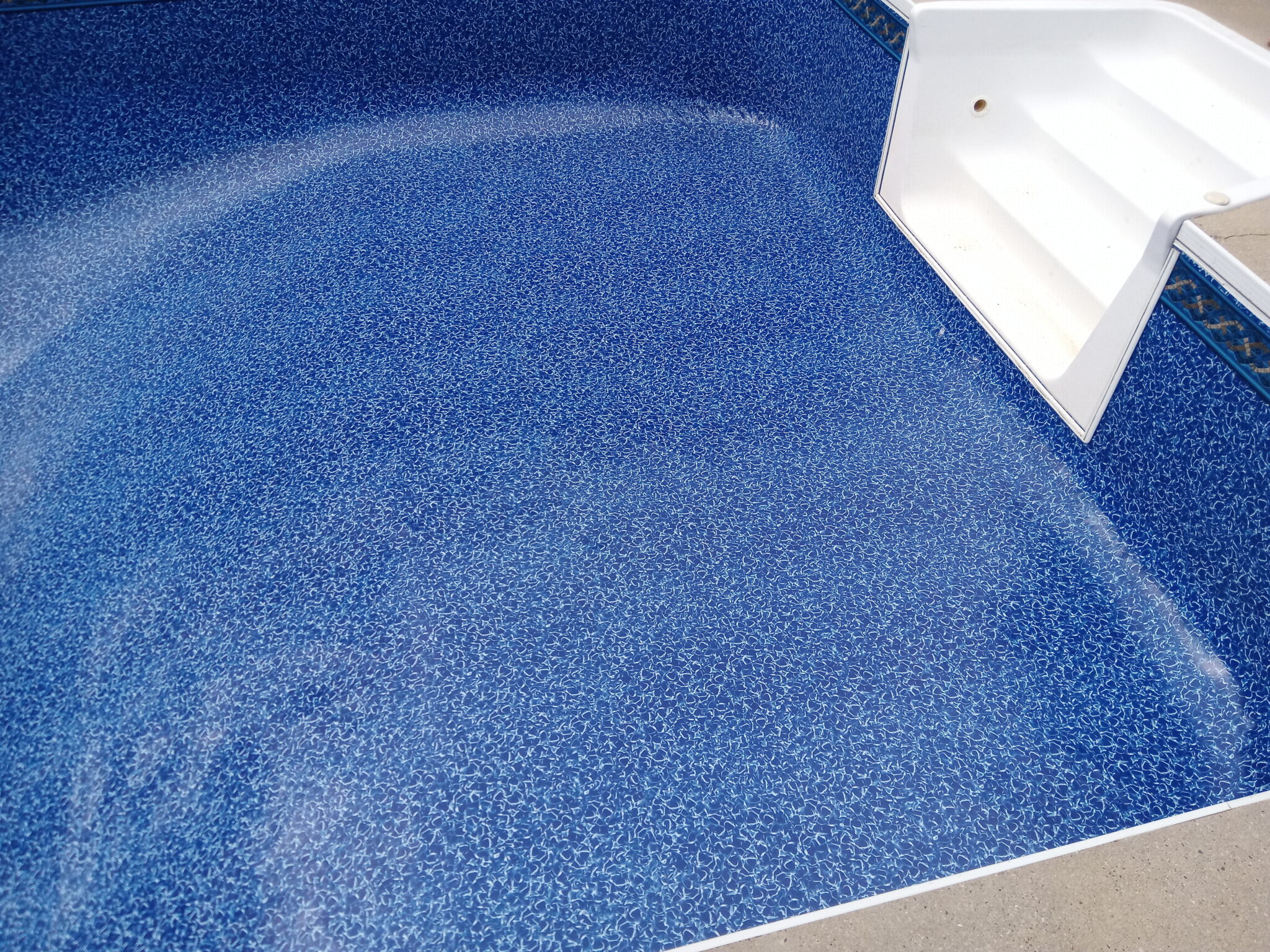
The liner’s lifespan might seem long, but the time to replace it can come sooner than expected. Age is a factor, but it’s not the only sign that your pool liner needs replacement. Here are some key indicators to watch out for:
Wrinkled Liner, Leaks, and Water Loss
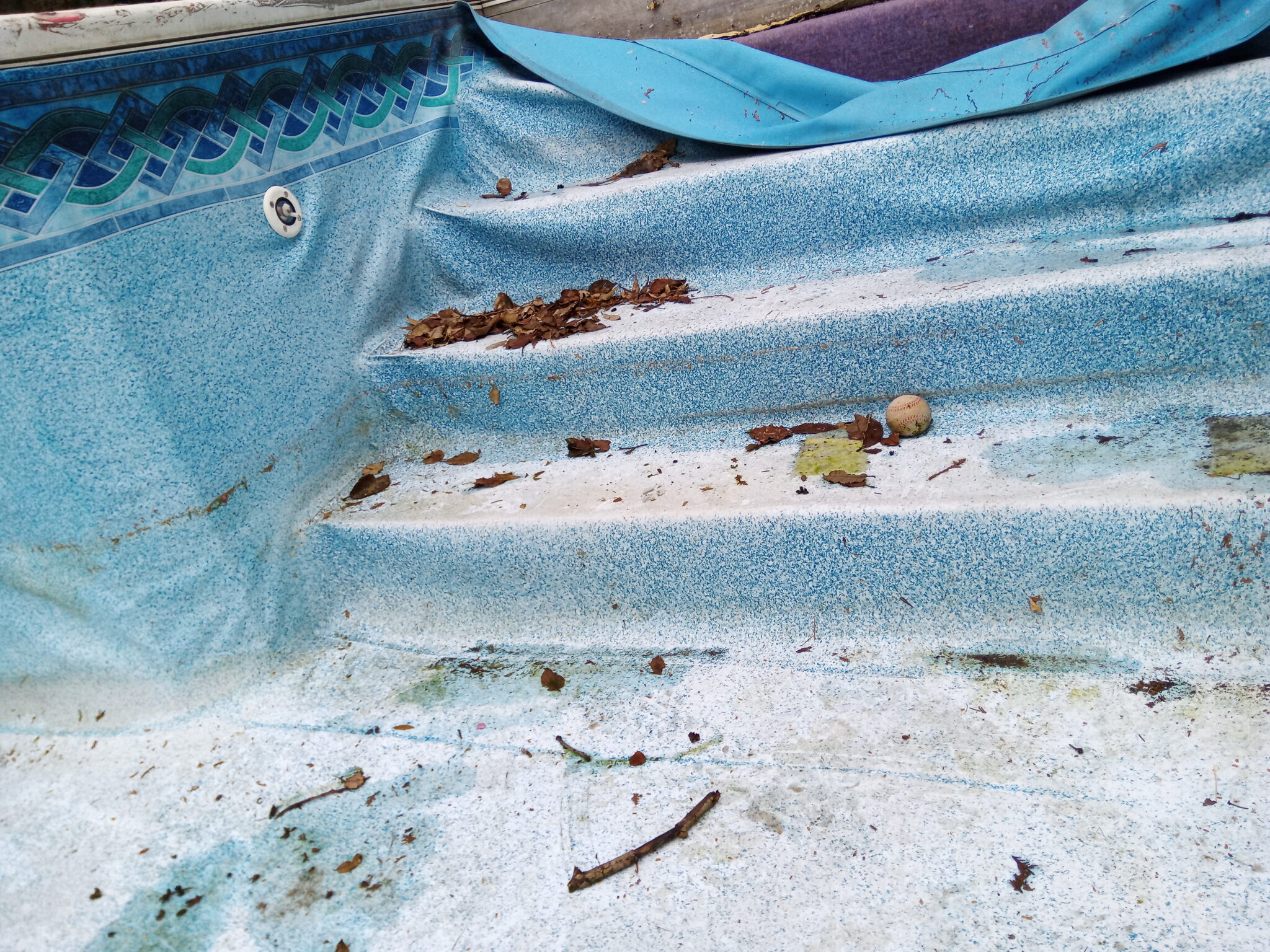
A wrinkled liner or a significant decrease in water level over a short period could indicate a leak in your pool liner. A simple ‘bucket test’ can help determine if the pool is losing water. While some water loss due to evaporation is normal, substantial loss may point to a problem. Untreated leaks can further damage the liner, the pool’s foundation, and surrounding areas.
Bucket Test
The bucket test is a method used to determine if water loss in your pool is due to evaporation or a potential leak. By comparing the water levels inside and outside a bucket placed in the pool, you can determine if the pool water is evaporating at a normal rate or if there is an abnormal loss indicating a leak. The concept is that evaporation is affecting the bucket and the pool at the same rate.
As such, if the bucket and the pool water level do not fall at the same rate, there is a leak somewhere in the pool. To perform this test, you will need: A bucket, some round stones to weigh the bucket down, and a Sharpie. This will also only be possible if you have steps in your swimming pool so the bucket can be placed with a solid base but still keep the top of the bucket out of the water.
- Place round stones in the bucket: Start by placing some round stones in the bucket. This will serve to weigh it down so it doesn’t move or float away.
- Position the bucket in the pool: With the bucket now weighted but still empty of water (except for the stones), place the bucket in the second step of the pool.
- Mark the current water level: Using a Sharpie, mark the pool’s current water level on the inside of the bucket.
- Fill the bucket with water: Now, fill the bucket up to the line you’ve just marked with the Sharpie.
- Monitor the water levels: Pay close attention to the water level inside and outside the bucket, comparing it to the original Sharpie line.
- Identify potential leaks: If the water level falls faster outside the bucket than inside, it’s likely that you have a leak in your pool.
Bleaching from Heavy Chemical Usage and UV Rays
Pool chemicals are essential for maintaining clean water, but excessive use can bleach your pool liner. Over-chlorination can cause the liner’s colour to fade and deteriorate faster, leading to weak spots prone to potential leaks. Exposure to sun and UV rays can also cause chemical damage, leading to a faded liner. Yet, don’t worry; most modern pool liners today come with UV inhibitors, which resist fading and provide protection from UV and chemical damage.
Vinyl Becoming Brittle and Prone to Holes
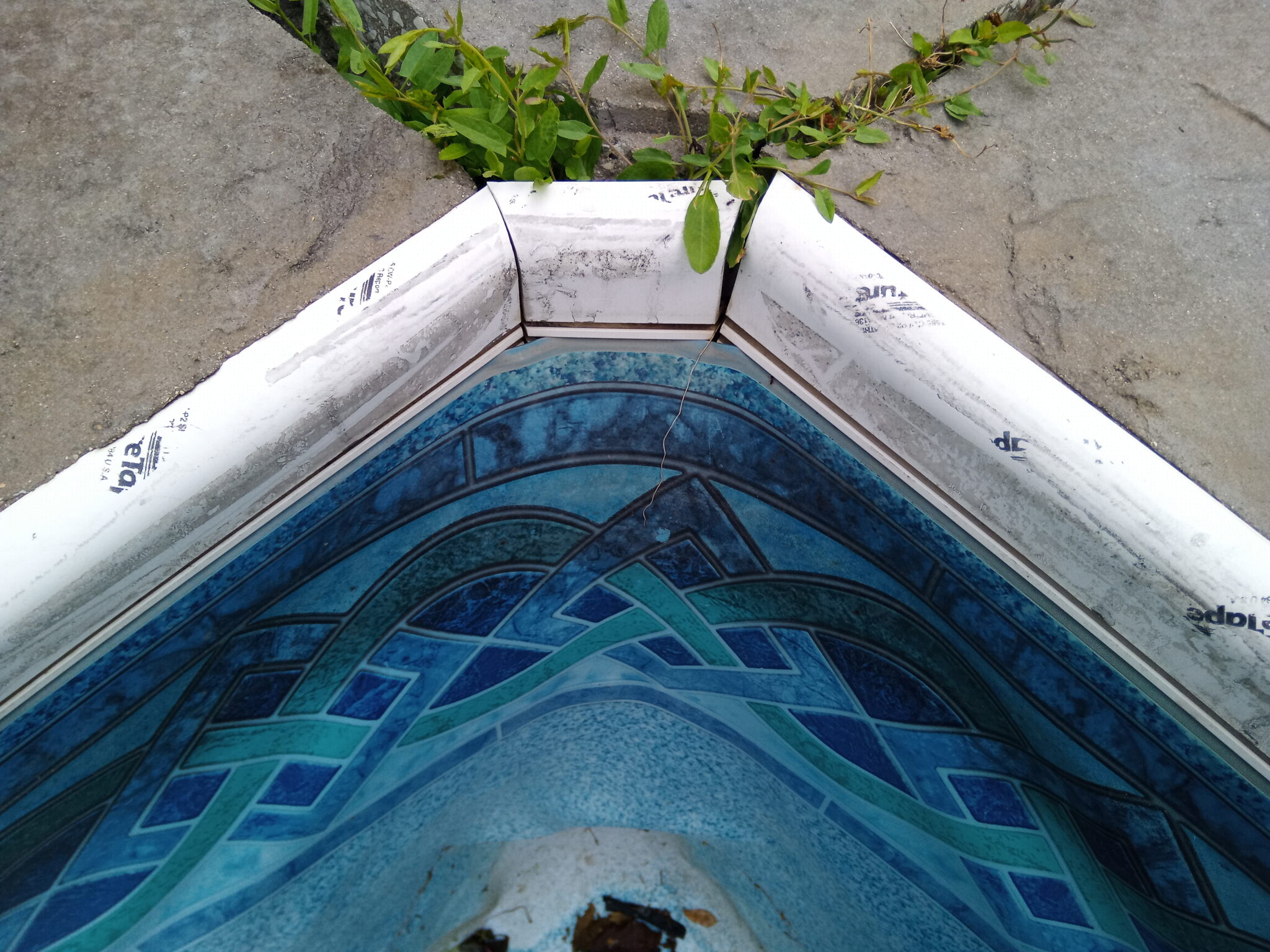
Over time, exposure to the sun, chlorinated water, and chemicals can cause the vinyl in your pool liner to become brittle and prone to holes. If the liner material feels brittle or you notice small tears or holes, it’s time for a replacement liner. Replacing an older liner early in the swimming season, preferably early spring, can save money on expensive repairs later. Changing your liner in a controlled manner before a catastrophe happens is always the best practice! Liner failure in the middle of a season may cause significant damage and lead to an extended period without your swimming pool.
The Replacement Process: How Coastal Pools Can Help
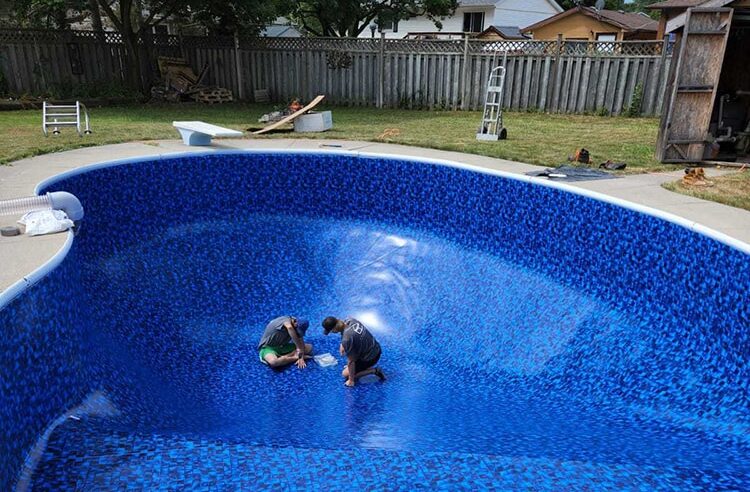
Replacing a pool liner involves draining the pool, removing the entire old liner, prepping the surface for the new liner, measuring for your new liner, pressure testing the pool lines, and fitting a new one. At Coastal Pools, our team of experts ensures a seamless replacement process, minimizing downtime and maximizing your swimming season. This process requires professional expertise to ensure proper installation and avoid potentially costly repairs. A well-fitted liner beginning with a good fit in the coping track, the top track that holds the liner in place, can save you from a whole season of hassles.
Type of Water (Chlorine vs Salt Water)
The type of water in your pool can significantly impact your pool liner, particularly when it comes to chlorine versus saltwater pools.
The Salt Water Challenge
Pools that use a saltwater system generate their own chlorine through a process called electrolysis. While saltwater pools can feel gentler on the skin and require less manual chemical handling, they also have their own challenges.
Salt Water and Rusting
Specifically, if a saltwater pool begins to leak, the salt water can cause the steel panels of the pool to rust and degrade far more quickly than in a chlorine pool. This makes it critical to repair the leak or replace the liner as soon as possible to prevent further damage.
Chlorine Pools and Leaks
Although chlorine pools don’t have the same rusting issue, they still need to be monitored closely for leaks to prevent liner damage and maintain the overall integrity of the pool structure.
Proactive Maintenance is Key
Regardless of whether your pool uses salt or chlorine water, proactive maintenance and timely repair of any leaks are key to extending the lifespan of your pool liner.
Water Chemistry
Maintaining the right balance of chemicals in your pool is essential to prevent damage to your liner. High chlorine levels can cause the liner to fade and become brittle, while low pH levels can cause the liner to wrinkle. Regular testing of your pool’s water chemistry can help prevent these issues. You can find all the necessary products for maintaining your pool’s water chemistry in our store.
UV and Chemical Damage
Exposure to UV rays and harsh pool chemicals can cause your pool liner to fade and deteriorate over time. Most modern pool liners come with UV inhibitors, which resist fading and provide protection from UV and chemical damage. Regular solar blanket use can also help protect your liner from these elements.
Quality of Liner Installation
The quality of the liner installation can also impact its lifespan. A poorly installed liner can lead to wrinkles, leaks, and other issues that can shorten lifespan. At Coastal Pools, our team of professionals ensures a seamless installation process, providing your liner with the best start to its lifespan.
Ground Water
Groundwater around your pool can pressure your pool liner, leading to potential leaks. This is caused because it allows your liner to float and resettle. This movement causes lots of movement in the liner, causing wrinkles or potentially putting holes or tears in the liner. A floating liner is also extremely difficult to vacuum, often getting stuck on the vacuum. When this happens, the hard suction in one spot can also damage the liner.
Pool Usage
The manner of pool usage can also affect the lifespan of your pool liner. For instance, if toys with sharp edges are brought into the pool, it can lead to scratches and punctures in the liner. Dogs using the swimming pool can sometimes lead to tears in the liner due to their nails. Regular maintenance and care can help mitigate these issues and prolong the lifespan of your liner.
Choose Coastal Pools for Your Pool Liner Needs
At Coastal Pools, we understand the importance of a well-maintained pool liner. Whether you need a liner replacement or want to install a new one, our team of professionals is here to help. Contact us today and let us take care of your pool liner needs, so you can continue to enjoy your oasis.

